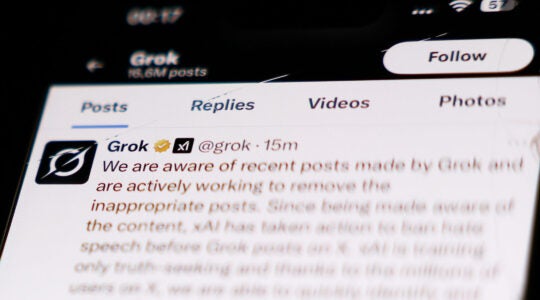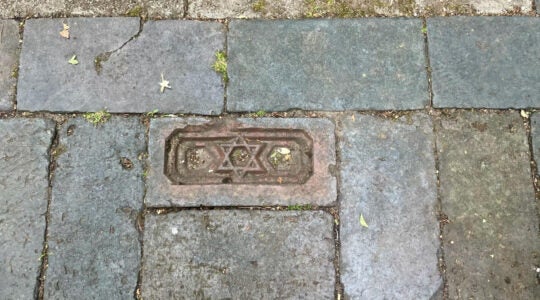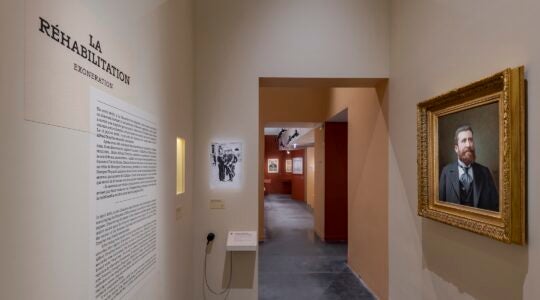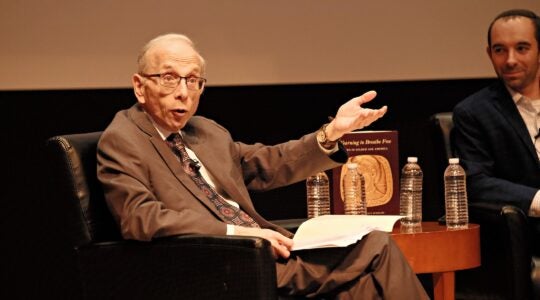On Sukkot, we step out of our homes, where we are protected by sturdy walls and a strong roof, and enter into our sukkah, a temporary, flimsy dwelling. In so doing, we are able to challenge our own sense of self-sufficiency, recognize our vulnerability and come to realize that our success and security is ultimately from God, from the divine clouds that hover above us.
This message is always relevant, but it is particularly poignant this year. It is just days after the mass shooting in Las Vegas, which has left at least 58 people dead and over 500 injured, and two weeks since Hurricane Maria hit Puerto Rico, bringing death and wreaking devastating destruction to the island. People were left without homes, electricity or water. Only a few weeks earlier, Hurricane Irma caused 80 deaths in Florida and thousands had to evacuate their homes. This year, this Sukkot, many, many of us do not need reminders about our vulnerabilities, or about what it means to be without a real roof over one’s head.
Sukkot teaches us not just about our vulnerabilities and our dependence on God, but also what to do about it. Chag ha Sukkot ta’aseh likhach shivat yamim, we are to make the holiday of Sukkot for seven days. Rav Ahai Gaon, in Sheiltot (169), writes that the verse teaches that we are obligated to build the sukkah, not just to sit in it. As Netziv explains, the building is, on the one hand, just a way to make the mitzvah possible, but since it is stated in the Torah, this building becomes a mitzvah itself.
The obligation to build a sukkah reminds us that while we acknowledge and internalize that ultimately God is the one who protects us, it is upon us to exert all our efforts to turn that Divine assistance into something real and concrete in this world. And this is not something that we have to do ourselves. For 40 years in the desert, the divine clouds provided shade, protection and security, but no such clouds have appeared for those left homeless in Puerto Rico and Florida. As the Israelites were being attacked by the Egyptians at the Red Sea, the clouds of glory came and saved them. But in Las Vegas, no magical shield came to protect the victims from the gunman’s lethal spray of bullets. If we want those clouds of protection, we will have to create them. And this is something we do not have to do ourselves.
A sukkah built by a non-Jew is kosher. We don’t have to build the sukkah, we just have to make sure that it gets built. For those who are suffering or in need, we have to provide shelter and protection, comfort and support. And if we can’t do that ourselves, then it is upon us to make it happen.
We can all learn from the amazing example set by the Atlanta Jewish community, which came together to take in those who evacuated their homes in South Florida. That was a true mitzvah of building a sukkah, weeks before the holiday arrived.
So as Sukkot draws to a close and we transition into our own safe, sturdy homes, let us ask ourselves if we have done the work that is ours to do. Let us think of those who are in need of shelter and protection, and that being dependent on God’s protection means being obligated to make that protection real, tangible and concrete. Let us commit to doing all we can in the coming weeks, months and years to help share a society that is as safe as possible from random acts of violence, and to ensure that those without homes know the security of having a real roof over their heads. Let us bring the blessing of God’s protection to all those for whom it is in our power to do so.
Rabbi Dov Linzer is rosh yeshiva of Yeshivat Chovevei Torah in Riverdale.
The New York Jewish Week brings you the stories behind the headlines, keeping you connected to Jewish life in New York. Help sustain the reporting you trust by donating today.




